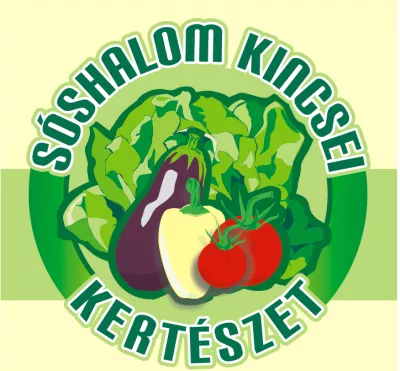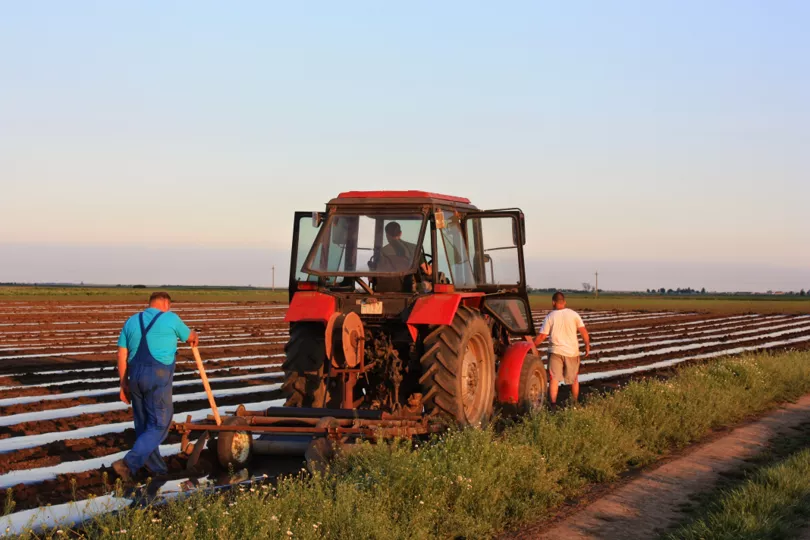General information
RDP Priority
- P4. Ecosystems management
RDP Focus Area
- 4A: Biodiversity restoration, preservation & enhancement
RDP Measure
- M10: Agri-environment-climate
Beneficiary type
- Farmer / land manager
Summary
Over the years, Dóra Paplukács has built a highly diversified horticultural farm in Hungary, which sells its high-quality products directly to customers. Stagnation of purchase prices and increasing costs presented Dóra with many challenges, but CAP support for agri-environment-climate commitments enabled her to cover part of her farm’s production costs. This ensures that her business maintains a viable income, without any reduction in the quality of its produce.
Results
- CAP funding helped to safeguard both a supply of high quality crops and financial stability for Dóra’s farm.

Promoter
Family farm of Dóra Paplukács
Funding
RDP support: 112 500 (EUR)*
EAFRD: 90 000 (EUR)
National/Regional: 22 500 (EUR)
* Total payments of three years
Context
Dóra Paplukács graduated from the University of Debrecen in 2010, in IT agricultural engineering. During her final year of university, she started gardening as a hobby, and decided to borrow a small piece of land from her parents (who were already engaged in animal husbandry). It was here that she started to experiment with growing larger crops, starting with paprika. This went so well that in 2011 she bought a smaller property (1 800 m2) on which she planted 600 m2 of strawberries. Since no one in the area was producing strawberries, she had found a niche that guaranteed success. The entire crop was virtually sold right out of the gate, and the fruit didn't even make it to the local market. Growing in confidence from these early successes, Dóra decided to apply for the Young Farmer start-up grant, which she successfully won in 2014, allowing her to buy a farm and build five foil tents, totalling 1 125m2.
While establishing her own farm, Dóra had continued to grow plants on her parents' land, but in 2019 she was able to become fully independent, buying an 18 ha property, and increasing the area of her foil tents to 3 850 m2. 2020 saw Dóra’s business expand further still, when she began leasing 140 ha of land, of which 80 ha is arable and 60 ha is lawn. Now run by both Dóra and her husband, the farm produces peppers, strawberries, onions, garlic, lettuce, radishes, as well as sunflower and corn. In addition, they have some fruit trees and a small herd of cows to graze the lawn. They also grow seedlings in a 500 m2 foil greenhouse. The farm does small-scale processing, and manages the direct sale of crops and products. In addition to Dóra and her husband, who are the main permanent employees, this family farm employs another 3-8 seasonal workers.
For Dóra's business, the rent for the 140 ha of land represents a serious permanent cost. As the economic situation became more difficult, Dóra had to find a sustainable solution for her farm business: either she could start reducing production costs - through the use of cheaper inputs, for example, which would reduce the quality of her produce - or she could apply for additional financial support that would enable her to maintain both the high quality of her products and a reasonable income from her work.
Objectives
The farm joined the agri-environment-climate payments system to maintain its current high-quality production and ensure its viability.
Activities
Project activities included:
- Agri Environmental Management was implemented across an area of 154 ha. Of this, 100 ha is arable land - with 10 ha of horticulture in foil tents - and 54 ha is lawn (out of 60 ha of lawn only 54 ha was involved).
- The grassy areas of the farm are located in a Natura 2000 area and belong to the Körös-Maros National Park. It was not possible to apply for the same agri-environment-climate commitments for this grassland, as these were already mandatory under Natura 2000 commitments. Therefore, grazing livestock and alternating mower commitments were already in use in this area. Dóra also has a small herd of 13 cattle which graze the lawn areas of her farm. They are housed at her parents' farm, alongside their own cattle.
- In the field, Dóra and her husband work with a high-quality, metal-sealed seeder. They also leave 6-10 m chemical-free field edges planted with flowering plants which, in accordance with the measure’s obligations, make up 15% of the total perimeter of the entire area. Another commitment was that the arable area would be left un-ploughed once every five years, with only soil loosening carried out.
Main results
- With the support received, Dóra’s farm was able to guarantee its financial stability and the high quality of its crops.
- As a new venture, Dóra has begun processing small quantities of juices, pickles, vegetable purées, jams, etc. She has started to sell these along with her crops directly at the market, on-site, and through the farm’s newly created online shop.
- In the future, Dóra would like to further develop the online shop, which is currently still quite rudimentary. Overall, the farm’s crops and processed products are in high demand, and Dóra would like to produce and sell them in larger volumes.
- Dóra and her husband have a lot of plans, but further investments require additional financial support. They are currently waiting for the calls of the new programming period.
Key lessons
- Agri-environment payments support nature restoration, rural employment, nutritious food supplies, and incentivise farm diversification.
- To meet the Agri Environmental Management commitments, Dóra kept the minimum number of cattle needed for grazing their territory, but sadly one of the animals died. This meant that Dóra failed to fully fulfil the commitment and she therefore received a fine. The lesson here is that it is worth keeping more livestock than the required minimum.
Horticulture is not a path, but a maze and constant learning process.
